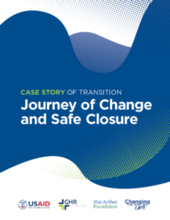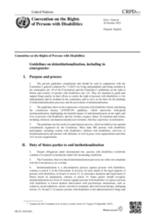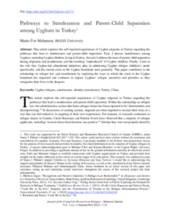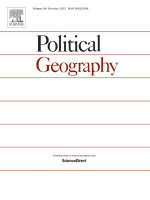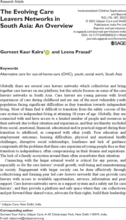Displaying 1531 - 1540 of 14557
Sri Lanka government officials visited the state of Rajasthan in India to view family-based care models that will inform Sri Lanka’s child protection system as the country transitions into an innovative approach that supports children in family settings. CERI, in partnership with UNICEF Sri Lanka and UNICEF India, hosted the delegation’s visit to family-strengthening, foster care, and group foster care models implemented by Foster Care Society and the Department of Child Rights in Rajasthan.
The Journey of Change and Safe Closure case story demonstrates the process of early engagement and awareness to supporting the long-term reintegration of children in families.
These guidelines complement the Committee’s General Comment No. 5 (2017) and its guidelines on the right to liberty and security of persons with disabilities. They are intended to guide and support States parties, in their efforts to realize the right of persons with disabilities to live independently and be included in the community, and to be the basis for planning deinstitutionalization processes and prevention of institutionalization.
Ukraine says it dismissed nearly 100,000 children from institutional care. With help from U.N. child agency UNICEF, it is still trying to reach some 26,000 of them.
In this theoretical paper, the authors argue that, due to the detrimental impact of parental loss on academic achievement in France, orphaned students should be considered as students with special educational needs. This is important to provide appropriate educational responses consistent with inclusive education.
Despite rising numbers of unaccompanied child migrants in the Americas, very limited research directly engages with youth as they journey north to seek protection in the United States. In this article, the authors examine young Central American migrant experiences of bordering, focusing on policing and shelter management.
This article focuses on some of the care leavers networks in South Asia.
Under the auspices of the Ukraine Children’s Care Group, one of two learning events were held in July and September 2022. This event, "Addressing the need for foster care in the context of the Ukraine crisis", was held on September 7th in collaboration with HDPI. It focused on better understanding the foster care systems and services in Ukraine and neighbouring countries hosting Ukrainian refugee children, specifically Poland, Romania, and Moldova.
More than 10.5 million children have lost one or both parents during the coronavirus pandemic — nearly double the previous estimates — according to data released Tuesday. Southeast Asia and Africa suffered the greatest rate of losses, with one out of every 50 children affected compared with one out of 150 children in the Americas, according to the research letter published in JAMA Pediatrics.
Global totals and country comparisons were previously hampered by inconsistencies in COVID-19 testing and incomplete death reporting. The new orphanhood estimates derived here based on excess deaths provide a comprehensive measure of COVID-19’s longterm impact on orphanhood and caregiver loss.

